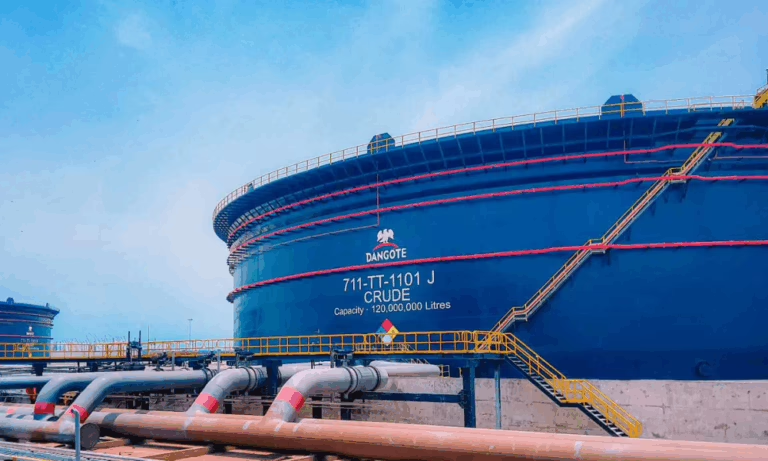The Dangote Petroleum Refinery has announced a halt to petrol sales priced in naira, a move that has unsettled fuel distributors and reignited worries about pricing stability and foreign exchange challenges within the downstream oil sector.
In a communication sent to clients on Friday, the refinery stated that this suspension would commence on Sunday, September 28, 2025, due to the depletion of its crude-for-naira allocation quota.
The notice, issued by the Group Commercial Operations division of Dangote Petroleum Refinery & Petrochemicals, was titled “Suspension of DPRP PMS Naira Sales, Effective 28th September 2025.”
“We wish to inform you that Dangote Petroleum Refinery & Petrochemicals has exceeded its naira-crude allocation in selling petroleum products, making it unsustainable to continue PMS sales in naira,” the message explained.
“Please be advised that the suspension of naira-denominated PMS sales will take effect from Sunday, 28th September 2025. Further updates on the resumption of these sales will be communicated once the issue is resolved.” Customers with pending naira transactions were urged to formally request refunds.
RELATED: NNPC reports ₦539bn profit after tax amid increased remittances
This development comes amid ongoing industrial disputes at the refinery. On Friday, the Petroleum and Natural Gas Senior Staff Association of Nigeria accused the company of engaging in “anti-labour practices” following the reported termination of over 800 Nigerian employees.
The union leadership pledged to oppose what they termed an “unfair and insensitive corporate action,” warning of coordinated nationwide protests if the conflict remains unsettled.
This is not the refinery’s first suspension of naira-based sales. In March 2025, Dangote temporarily stopped petrol sales in naira, citing insufficient crude-for-naira allocations. That earlier suspension sparked concerns about fuel dollarisation and led to pump prices nearing N1,000 per litre.
Given the refinery’s pivotal role in Nigeria’s energy security, experts caution that the combination of halted naira sales and escalating labour tensions could jeopardize government initiatives aimed at stabilizing the petroleum market through ongoing reforms.



















